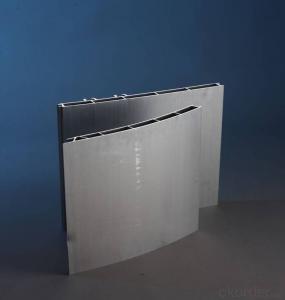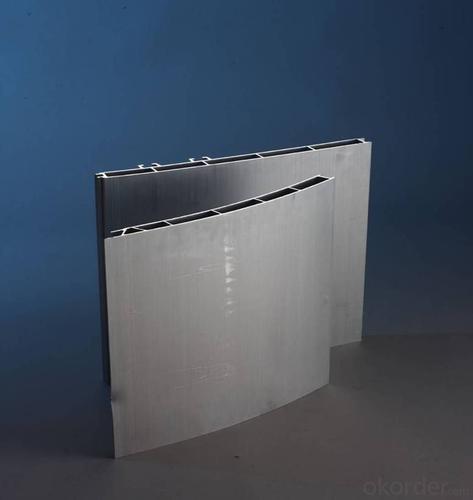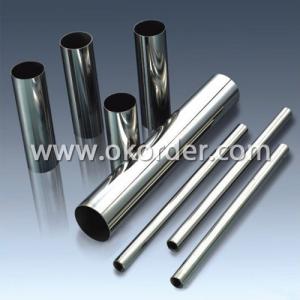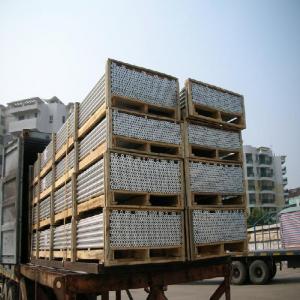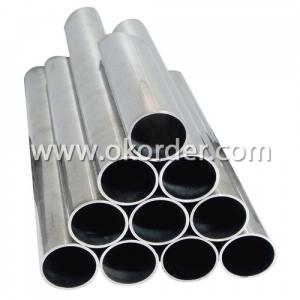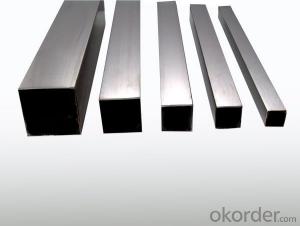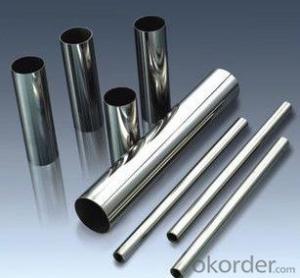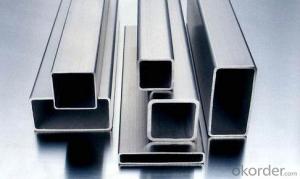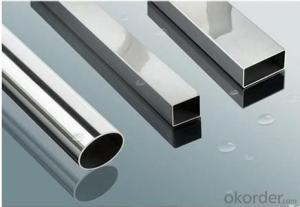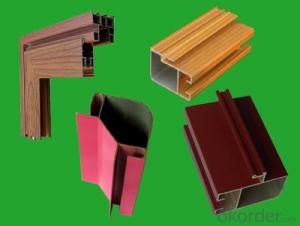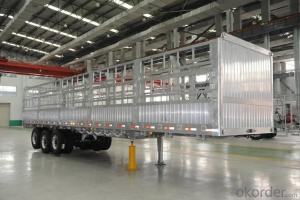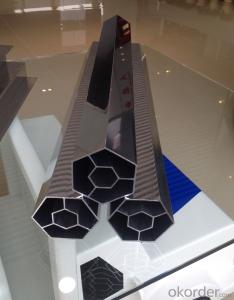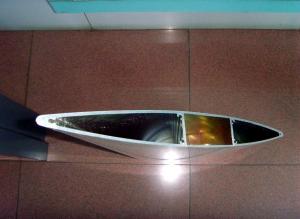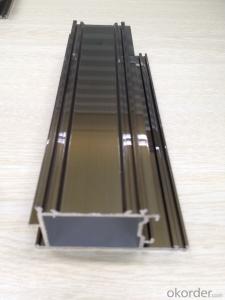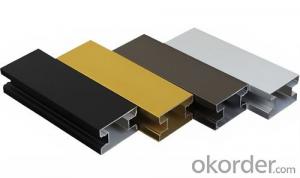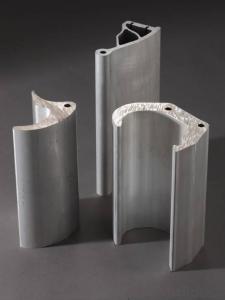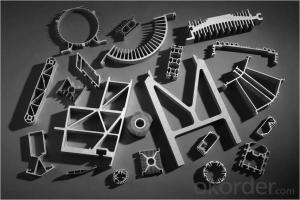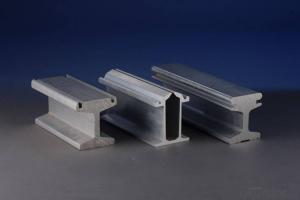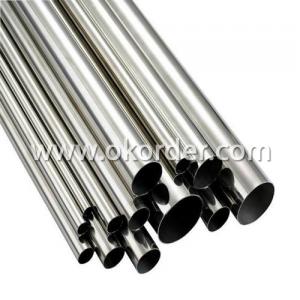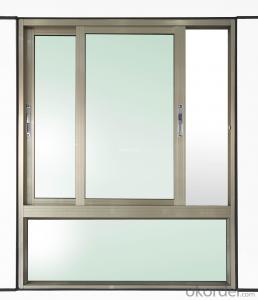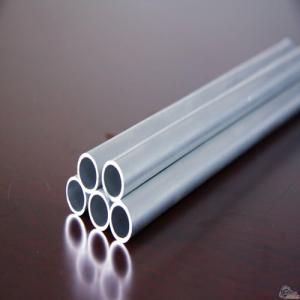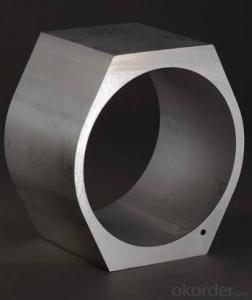Aluminum Pipes for Vehicle Side Wall Aluminum Profile
OKorder Service Pledge
OKorder Financial Service
You Might Also Like
We are the largest aluminum profilemanufacture in
Material | Alloy Aluminum 6063,6061,6005,6082 or customer nominated |
Temper | T3, T4, T5, T6 and other |
Surface | Anodize, electrophoresis, Mill,etc |
Colour | -- |
Length | Not more than 16 meters |
Good Package | Inner plastic film /outside carton/wooden pallets |
Payment Method | T/T, L/C, etc |
Delivery Time | Normally 2-4 weeks, Delivery time can be consulted. |
Press Machine | 500-12500 tons all together 93 press lines. |
Fabrication | 1. Car body; 2. Drilling; 3. Bending; 4. Cutting; 5. etc. |
Certificate | ISO/TS 16949,DNV,IRIS,CCS,AFA,etc. |
Dies | 1. Using our dies, no fee; |
2. Using customer drawing, opening dies, usually about 5~50 tons then the dies cost can be refunded. | |
3. Die cost is negotiable base on the order quantity | |
Capability | Annual output 800,000 tons |
- Q: How do aluminum pipes compare to copper pipes?
- Differentiating aluminum pipes from copper pipes reveals several key distinctions that render them appropriate for varied applications. Primarily, aluminum pipes tend to be more cost-effective than copper pipes, making them a favored selection for projects that prioritize budget. Conversely, copper pipes are typically pricier but renowned for their robustness and longevity. Furthermore, aluminum pipes possess a lighter weight, rendering them easier to handle and install, whereas copper pipes are heavier and might necessitate supplementary support. Regarding corrosion resistance, copper pipes surpass aluminum pipes. Copper exhibits remarkable resistance against corrosion and can endure extreme temperatures and challenging environments, rendering it a preferred choice for plumbing and HVAC systems. Conversely, aluminum is more susceptible to corrosion and might require protective coatings or treatments in certain scenarios. Concerning thermal conductivity, copper pipes far outperform aluminum pipes. Copper boasts exceptional heat transfer properties, making it ideal for applications demanding efficient heat exchange, like air conditioning and refrigeration systems. Although aluminum is less conductive, it is still utilized in circumstances where weight and cost carry greater significance. Lastly, it is crucial to acknowledge that copper pipes possess a longstanding track record in plumbing systems, while aluminum pipes are relatively newer to the market. Consequently, copper pipes have undergone extensive research and testing over time, resulting in well-established standards and practices. Conversely, aluminum pipes might necessitate added considerations and precautions due to their distinct properties and characteristics. Ultimately, the choice between aluminum pipes and copper pipes hinges on the specific requirements of the project, budgetary restraints, and desired performance criteria. Seeking guidance from a professional or engineer is always recommended to ascertain the most suitable option for a particular application.
- Q: Are aluminum pipes suitable for outdoor lighting fixtures?
- Yes, aluminum pipes are suitable for outdoor lighting fixtures. Aluminum is a durable and corrosion-resistant material that can withstand outdoor elements such as rain and UV exposure. It is also lightweight, making it easy to install and maintain. Additionally, aluminum pipes can be easily shaped and molded to create various designs and styles for outdoor lighting fixtures.
- Q: How can the aluminum pipe burr be convenient?Burr left by drilling
- The internal tube is burr! Not very long words can be a round drill clamp in the round head through a 1 mm wide and about 30 mm in the hole, and then put the paper cut up into 30 broad band card in the slot to rotate in the opposite direction wrapped up! Until Guan Zikong was slightly more than a little good! So you can clear burrs on the inner wall of the!
- Q: Is the Bondi tube in the fridge good or the aluminum tube?
- Most of the domestic brands are using copper and steel outside the Bondi tube, such a set of bending equipment to about 20000000, the general small manufacturers are not purchasing power. Now the brass also has not used directly, easy oxidation, surface green.
- Q: Will the aluminum tube (6063) anodized after the local needle hole shaped point, what is the reason for it, is the material problem or oxidation plant corrosion?
- I have been working in this area, a few years, what are a little, in fact, no matter what, to ensure the material beautiful, do not have that you said.
- Q: What's the difference between the 6063 aluminum pipe and the 6061 aluminum tube, and it needs to be described in detail,
- It is a typical extrusion alloy. It is widely used in building profiles and irrigation pipesPipes, rods and profiles for vehicles, platforms, furniture, elevators, fences, etc.
- Q: Can aluminum pipes be used for swimming pool systems?
- Yes, aluminum pipes can be used for swimming pool systems. Aluminum is a lightweight and corrosion-resistant material, making it a suitable choice for pool systems. It is commonly used for piping systems in both residential and commercial swimming pools. Aluminum pipes are known for their durability and longevity, as they can withstand harsh weather conditions and chemical exposure. Additionally, aluminum pipes have excellent heat conductivity, ensuring efficient heat transfer for heating or cooling systems in pools. Overall, aluminum pipes are a reliable and cost-effective option for swimming pool systems.
- Q: Can aluminum pipes be used for irrigation sprinkler systems?
- Yes, aluminum pipes can be used for irrigation sprinkler systems. Aluminum pipes are lightweight, durable, and resistant to corrosion, making them suitable for use in irrigation systems. Additionally, they are easy to install and maintain, making them a popular choice for many agricultural and landscaping applications.
- Q: Can aluminum pipes be used in HVAC systems?
- Indeed, HVAC systems can make use of aluminum pipes. Aluminum, being a metal that is both lightweight and resistant to corrosion, is an optimal selection for HVAC purposes. These pipes find common application in air conditioning and refrigeration systems, as well as in heat exchangers and condensers. Their exceptional thermal conductivity facilitates efficient heat transfer, and they possess durability and longevity. Moreover, aluminum pipes are easily manipulated to meet specific requirements, as they can be readily cut, bent, and shaped. All in all, aluminum pipes present a dependable and economical choice for HVAC systems.
- Q: Are aluminum pipes suitable for high-speed train tracks?
- No, aluminum pipes are not suitable for high-speed train tracks.
Send your message to us
Aluminum Pipes for Vehicle Side Wall Aluminum Profile
OKorder Service Pledge
OKorder Financial Service
Similar products
Hot products
Hot Searches
Related keywords
